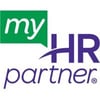Manufacturing is the lifeblood of domestic and global economies, not to mention our daily lives. Yet among U.S. sectors, it’s the most hard-pressed to find and retain qualified employees – a reality that persists even as the larger workforce resumes pre-pandemic stability.
According to Deloitte, nearly 60% of respondents to a recent National Association of Manufacturers (NAM) survey cited the inability to attract and retain employees as their top challenge. While not exactly breaking news (HR challenges in manufacturing, including its skills gap, have made headlines for years), stakes are rising as staggering numbers of manufacturing professionals retire even as demand for manufacturing grows.
All of which is to say: Manufacturers nationwide are desperate to attract, hire, and retain right-fit employees, yet are perennially challenged to do so. Manufacturing employee retention is a particularly significant problem. According to the Bureau of Labor Statistics, the average rate of manufacturing employee turnover is 39.9% (up from 30.6% in 2017)[1].
Which is a perfect transition to the necessity and critical benefits of HR – for all workplaces, but manufacturing companies especially.
HR's Big Benefits for Manufacturing
If you’ve worked for (or even just heard about) a company whose employees stick around for years and speak highly of their employer…or a business with a glowing reputation in its community or field...that company, without a doubt, has strong HR.
Strong HR, whether in-house or outsourced, will elevate all of the following facets of business as well as intangibles like reputation and morale. Strong HR in manufacturing companies brings added value given ongoing labor shortages and related challenges:
- Hiring and retention. Thanks to proven frameworks, airtight processes, and thoughtful strategy, strong HR is often the key difference between unsuccessful and successful hiring and low and high employee retention.
- Employee relations. HR experts leverage experience and expertise to create workplaces that employees enjoy and appreciate (essential to employee referral programs that can boost hiring).
- Compliance. Strong HR is a common trait among legally compliant companies. Weak HR, meanwhile, often creates liability around employee law and employee relations. HR compliance for manufacturing is especially complex and vital due to mandated licenses and training.
- Payroll administration. Staggered work schedules, overtime, a mix of full-time employees and contractors, time cards, and more make manufacturing payroll a complex undertaking. This heightens the importance of a dependable and accurate payroll administrator aligned with larger company HR.
- Employee onboarding. More crucial than meets the eye, strong onboarding overseen by HR professionals goes a long way toward offsetting talent shortages.
And yet for all of these merits, workplace benefits alone aren’t the only reasons to secure strong HR for your manufacturing business.
A Field in Flux
If you envision hard hats, conveyor belts, and power tools while reading this, you’re not alone. Manufacturing and physical labor have historically gone hand-in-hand.
However, that’s changing. AI and automation technology are beginning to alter the face of manufacturing operations and therefore manufacturing workplaces. In what’s being dubbed Industry 4.0, manufacturing is seeing a rise in microfactories – small, modular facilities using state-of-the-art technology to produce items faster, cleaner, and at a lower cost. While this could ultimately reduce the need for human labor in manufacturing, Forbes recently reminded readers that “…it’s very hard to take the human entirely out of the manufacturing loop.” For the foreseeable future, manufacturing will continue to rely heavily on human talent, and will need the following more than ever before:
- Hiring expertise. What will manufacturing jobs entail as the industry becomes more technology-driven? What qualifications and skills will job candidates need to possess? Human resources experts will be at the forefront of determining tomorrow’s manufacturing job descriptions, and then sourcing, identifying, attracting, and hiring qualified talent.
- Upskilling. As industry-wide changes take hold, today’s manufacturing professionals will need to upskill in order to stay relevant and employed. As with all internal talent development, upskilling requires careful guidance from HR professionals who can plan and oversee training programs that align with evolving workplace demands.
- Adaptability. A shift to automation marks seismic changes for existing manufacturing facilities and their people. Employee-related change management will be the name of the game – and is the domain of HR professionals.
- Workforce reductions. The move from a physically laborious workforce to one marked by technical expertise will no doubt eliminate some roles. As always, experienced and qualified HR professionals are necessary to the delicate and legally precarious task of laying off, reducing, and otherwise right-fitting a company workforce.
Are you a manufacturing business that needs help attracting, keeping, and motivating your workforce – today, and as manufacturing evolves? Lean on myHR Partner. Manufacturing companies make up the largest portion of myHR Partner’s client base. With a clear grasp on the HR challenges facing your field, we map our expertise to your specific nuances and goals, then implement impactful solutions.
Reach out today for a complimentary myHR Partner consultation.
[1] https://www.twi-institute.com/manufacturing-employee-turnover/


